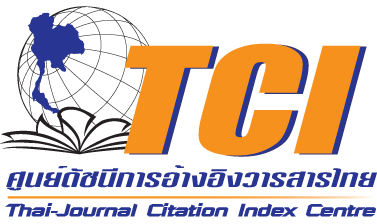The Development of Learning Activities on Statistics in Everyday Life Course through Authentic Project Based-Learning Approach for Undergraduate Students in Private University
Keywords:
Authentic Project-Based Learning, Statistics in Everyday Life CourseAbstract
The research objectives were (1) To develop Learning activities on Statistics in Everyday Life Course through Authentic Project-Based Learning (APBL) approach for Undergraduate students in a private university. (2) To compare learning achievement of Undergraduate students before and after participating in learning activities on Statistics in Everyday Life Course through APBL approach. (3) To compare the abilities of project work and the criteria of 70% of Undergraduate students after participating in learning activities on Statistics in Everyday Life Course. The sample for the study was 97 first-year students in different majors of St Teresa International University who enrolled in Statistics in Everyday Life Course in the 1st semester of academic year 2023. The research instruments included five lesson plans of learning activities for the Statistics in Everyday Life Course using the APBL approach, pre-test and post-test of learning achievement, and an evaluation form of abilities of project work. Mean, Standard Deviation, t-test-dependent, and t-test-one samples were used for data analysis. The results were (1) The five lesson plans of learning activities using APBL approach were evaluated by experts at the high level (x ̅ = 4.38, S.D.=0.35). (2) Post-test of learning achievement scores (x ̅ = 24.40, S.D.= 3.43) were significantly higher than pre-test (x ̅ = 10.53, S.D.= 5.60) at the level of .05. (t = -27.4), and (3) The scores of abilities of project work (x ̅ = 43.36, S.D = 3.04) were significantly higher than the Criteria of 70% at the level of .05 (t = 21.47).
References
Barab, S.A., Squire, K.D., & Dueber, W. (2000). A co-evolutionary model for supporting the emergence of authenticity. Educational Technology Research and Development, 48, 37–62.
Boston University Center for Teaching & Learning. (2023). Project-Based Learning.https://www.bu.edu/ctl/guides/project-based-learning/
Bransford, J., Brown, A. L., & Cocking, R. R. (1999). How people learn: Brain, mind, experience, and school. National Academy Press: Washington DC. https://knilt.arcc.albany.edu/images/4/4d/PBL_Article.pdf
Dewey, J. (1959). Dewey on education. Teacher College Press: NY.
Earle, T. M. (2020). Experiential Statistics: A Case Study in Favor of Using Project-Based Learning to Advance Preliminary Statistics Content Knowledge in the Algebra I and Geometry Classroom. LSU Doctoral Dissertations. 5437.
Eckardt, L., Smith, J., & Doe, A. (2020). The impact of project-based learning on student content knowledge in an undergraduate teacher preparation course. Education and Information Technologies, 25(6), 5581–5599. https://doi.org/10.1007/s10639-020-10376-7
Jalinus, N. & et al. (2017). The Seven Steps of Project-Based Learning Model to Enhance Productive Competences of Vocational Students. Advances in Social Science, Education and Humanities Research, volume 102. 1st International Conference on Technology and Vocational Teachers (ICTVT 2017).
Kerlinger, F. N. (1996). Foundations of behavioral research (3rd ed.). Harcourt Brace College.
Kokotsaki, D., Menzies, V., & Wiggins, A. (2016). Project-based learning: A review of the literature. Improving Schools, 19(3), 267–277
Koparan, T., & Güven, B. (2014). The Effect on the 8th Grade Students' Attitude towards Statistics of Project Based Learning. European Journal of Educational Research, 3(2), 73-85.
Krajcik, J. S., & Shin, N. (2014). In Project-based learning, & R. K. Sawyer (Eds.), The Cambridge Handbook of the Learning Sciences, (2nd ed., pp. 275–297). Cambridge University Press: Cambridge.
Lee, J., Blackwell, S., Drake, J. & Moran, K. (2014) Taking a Leap of Faith: Redefining Teaching and Learning in Higher Education through Project-based Learning. Interdisciplinary Journal of Problem-based Learning, 8(2), https://doi.org/10.7771/1541-5015.1426
Mayo, J. A. (2010). Constructing undergraduate psychology curricula: Promoting authentic learning and assessment in the teaching of psychology. American Psychological Association: Washington DC.
Mohammed, N. (2017). Project-based learning in higher education in the UAE: a case study of Arab students in Emirati Studies. Learning and Teaching in Higher Education: Gulf Perspectives, 14(2), http://doi.org/10.18538/lthe.v14.n2.294
Oblinger, D. (2007). Authentic Learning for the 21st Century: An Overview by Marilyn M. Lombardi. Retrieved from: https://vilo.bialystok.pl/wpcontent/uploads/2022/07/erasmus_sprawozdanie_barcelona/classsroom%20management%20resources/Authentic%20learning.pdf
Pan, Gary; Seow, Poh Sun; Shankararaman, Venky; & Koh, Kevin. An exploration into key roles in making project-based learning happen: Insights from a case study of a university. (2021). Journal of International Education in Business. 14, (1), 109-129.
Gary, Pan & et al. (2021). Research Collection School of Accountancy. Retrieved from https://ink.library.smu.edu.sg/soa_research/1870
Savery, J. R., & Duffy, T.M. (1995). Problem-based Learning: An instructional model and its constructivist framework. Educational Technology, 35, 31–38.
Seow, PS., Pan, G., & Koh, G. (2019) Examining an Experiential Learning Approach to Prepare Students for the Volatile, Uncertain, Complex, and Ambiguous (VUCA) Work. The International Journal of Management Education, 17(1), 62-76.
Stein, S. J., Isaacs, G., & Andrews, K. (2004). Authentic learning: A guide for educators. In Journal of Educational Technology & Society.
Shabbir, R. (2020). 6 Steps to implement project-based learning in the classroom. Retrieved from https://www.educationise.com/post/6-steps-to-implement-project-based-learning-in-the-classroom
Westwood, P. (2006). Teaching and learning difficulties: cross-curricular perspectives. ACER Press: Camberwell.







